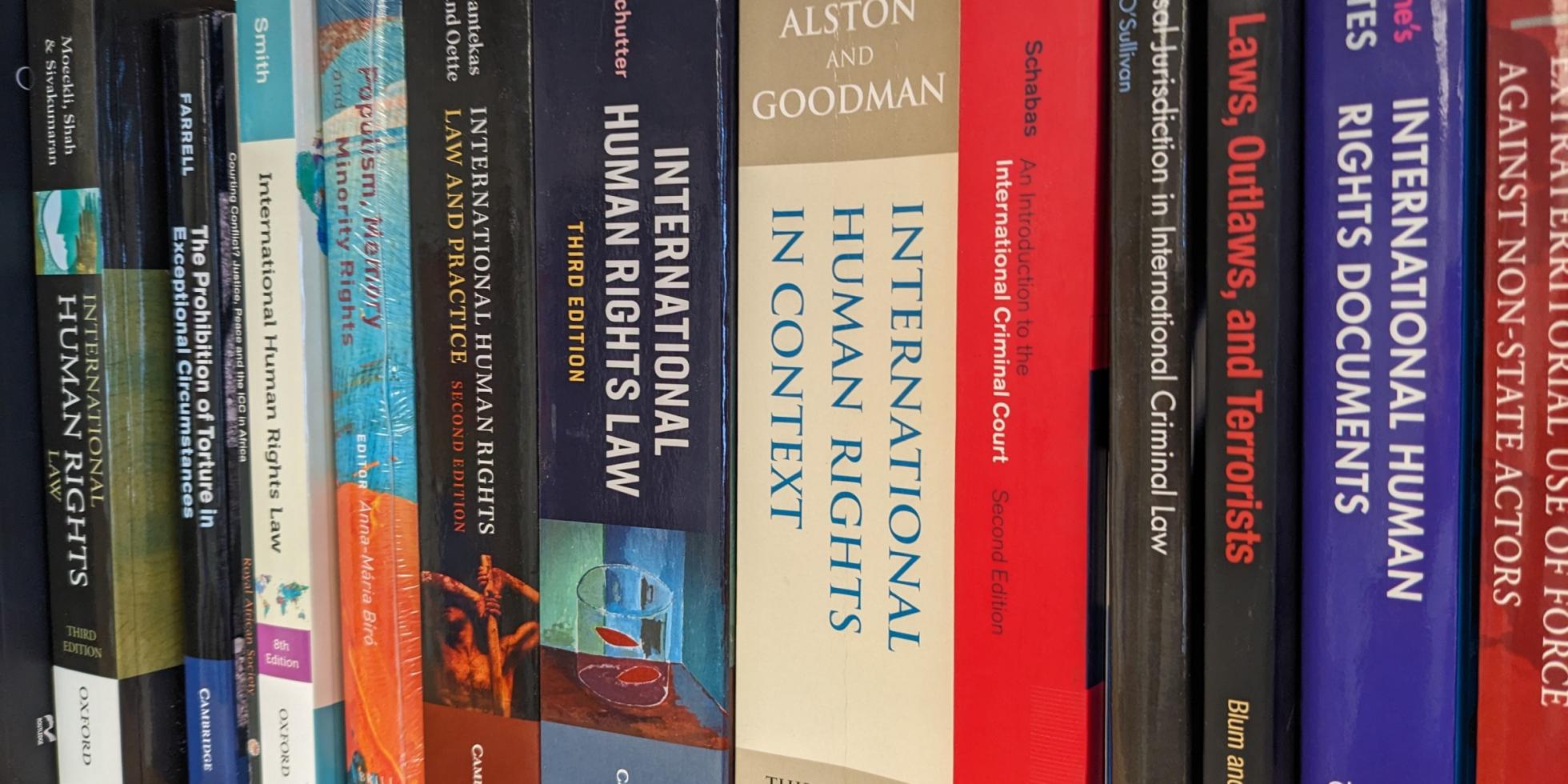The virtual human rights library brings together resources from multiple libraries and information services, both internal and external, to create an online hub dedicated to the study of human rights. This curation is unique in its interdisciplinary concerns and focuses on writings and research from social sciences, humanities, and law.
The virtual library is continually updated with the latest academic research in issue areas, as well as with relevant films, recorded conversations, and other forms of media.
Searchable Database
Click into the dropdowns to select the disciplines, keywords, and media type for your search, and then hit "Apply."
Alicia Schmidt Camacho "Ciudadana X: Gender Violence and the Denationalization of Women's Rights in Ciudad Juárez, Mexico" The New Centennial Review, spring 2005, Vol. 5, No. 1
This article examines the troubling status of poor migrant wome political actors in the denationalized space of Ciudad Juárez. Subaltern women's labors have served the state as a stabilizing force amidst the economic and political crises of the neo-liberal regime...
Joshua Kaiser, John Hagan "Crimes of terror, counterterrorism, and the unanticipated consequences of a militarized incapacitation strategy in Iraq." Social Forces 97, no. 1 (2018): 309-346.
“COIN,” the counter-terrorism doctrine the United States used during the Iraq War, was in criminological terms overly reliant on militarized “incapacitationist” strategies. Based a on competing “societal reactions” or community-level labeling theory, we argue that COIN failed to anticipate but...
Ariel Dorfman Death and the Maiden (Penguin Books, 1994)
Ariel Dorfman's 1991 award-winning drama is set in a country that ‘is probably Chile’ but ‘could be any country that has just departed from a dictatorship.’ Taking place in a remote beach house primarily on a single night and day...
Katherine McKittrick Demonic Grounds: Black Women and the Cartographies of Struggle (University of Minneapolis Press, 2006)
In a long overdue contribution to geography and social theory, Katherine McKittrick offers a new and powerful interpretation of black women's geographic thought. In Canada, the Caribbean, and the United States, black women inhabit diasporic locations marked by the legacy...
Adam Rosenblatt Digging for the Disappeared: Forensic Science after Atrocity (Stanford University Press, 2015)
The mass graves from our long human history of genocide, massacres, and violent conflict form an underground map of atrocity that stretches across the planet's surface. In the past few decades, due to rapidly developing technologies and a powerful global...
Adi Kuntsman, Rebecca L. Stein Digital Militarism: Israel's Occupation in the Social Media Age (Stanford: Stanford University Press, 2016)
Israel's occupation has been transformed in the social media age. Over the last decade, military rule in the Palestinian territories grew more bloody and entrenched. In the same period, Israelis became some of the world's most active social media users...
Jonathan Padwe Disturbed Forests, Fragmented Memories: Jarai and Other Lives in the Cambodian Highlands (University of Washington Press, 2020)
In the hill country of northeast Cambodia, just a few kilometers from the Vietnam border, sits the village of Tang Kadon. This community of hill rice farmers of the Jarai ethnic minority group survived aerial bombardment and the American invasion...
Danez Smith Don't Call Us Dead (Graywolf Press, 2017)
Award-winning poet Danez Smith is a groundbreaking force, celebrated for deft lyrics, urgent subjects, and performative power. Don't Call Us Dead opens with a heartrending sequence that imagines an afterlife for black men shot by police, a place where suspicion...
Barbara Demick Eat the Buddha: Life and Death in a Tibetan Town (Random House, 2020)
Just as she did with North Korea, award-winning journalist Barbara Demick explores one of the most hidden corners of the world. She tells the story of a Tibetan town perched eleven thousand feet above sea level that is one of...
Nandita Das Firaaq (Percept Picture Company, 2008)
Following riots in Gujarat, Arati experiences guilt when she did not open her door to shelter an injured Muslim woman. Her husband, Sanjay, had looted merchandise from shops, and his brother, Devan, had even sexually molested Muslim women. A young...
Please Note:
While the Virtual Library is now live for use, we are still working to update its contents and improve its functionality.
It is usable by all visitors, but the hyperlinks to materials listed are for UChicago community members with a CNet ID and password.
Please direct feedback and suggestions to Kathleen Cavanaugh.
For technical assistance, email pozenhumanrights @ uchicago.edu.

